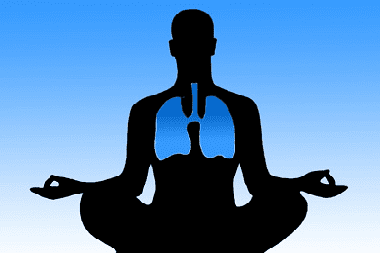Health for a lifetime >>>> What does lung volume affect?
What does lung volume affect?

The average person's lung capacity is about three to six liters (air). Athletes for whom the filling of the lungs with air is important (divers, swimmers, runners), during training, develop a lung volume of up to eight liters. With deep breathing, the volume of the lungs loads the maximum amount of air, but with normal even breathing, the lungs do not work to their maximum capacity. The question arises, why is this volume so important, what does the volume of the lungs affect?
In a calm state, the body, not burdened by diseases, does not use the entire volume of the lungs in order to maintain the work of all functional systems. But the body always has compensatory mechanisms that are turned on if necessary, setting a different rhythm of life for a person (in a state of fear or nervous tension, when overcoming complex obstacles of the natural environment, during physical exertion, with pathological changes in various structures of the body).
In all emergencies associated with running, holding breathing, any physical exertion, the body must be able to correlate the oxygen consumption with its intake and, either breathe more often, or load a larger volume of air into the lungs to maintain the oxygen level in the body in normal conditions. Nature decided that it is more expedient to have a larger reservoir in reserve for the body to fill with air, which will make it possible, in conditions of breath holding or when breathing with impurities of gases other than oxygen (for various reasons, including pathological ones), to have at its disposal a volume of air, sufficient for the production of the required volume of oxygen.
But a person cannot predict when exactly he may need the work of the compensatory mechanism, for this reason, care should be taken in advance to maintain the vital capacity of the lungs in a normal state. It is very important to timely identify and treat respiratory diseases; train the lungs in the process of life, artificially creating a certain kind of load. This will help in cases where it will be necessary to compensate for respiratory distress.

Read

Read



























